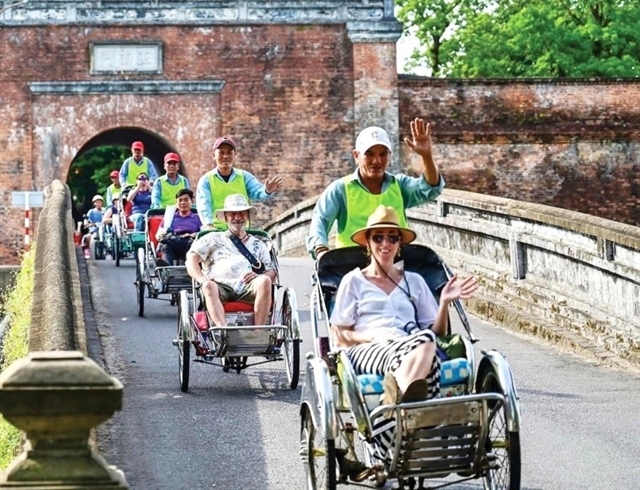 Society
Society


|
| The programme 'ThinkB4UClick' attracted nearly 300 participants, both in person and online. — Photo baoquocte.vn |
HÀ NỘI — A programme aiming to equip young people with essential knowledge and skills to prevent human trafficking was launched in Hà Nội on Monday by the International Organisation for Migration (IOM) and the Embassy of Canada in Việt Nam.
Named 'ThinkB4UClick', this initiative fosters young people's critical thinking and enhances their digital resilience. It was launched amid growing threats from online scams, deceptive recruitment schemes and human trafficking, especially in the Asia-Pacific region.
Since the COVID-19 pandemic, Southeast Asia has witnessed a surge in scam compounds operated by transnational criminal organisations running sophisticated online fraud schemes.
According to the IOM’s report on trafficking in scam centres in Southeast Asia, the number of trafficking cases addressed by IOM in the region has more than tripled, rising from 296 in 2022 to 1,093 in 2025. The report also revealed that at least 50 per cent of trafficking victims had graduated from high school, and about 50 per cent held university degrees.
Victims are often tricked with promises of attractive jobs but then detained, beaten, abused and stripped of their identification documents before being forced to carry out fraudulent activities.
Authorities in Việt Nam have also reported a rise in ‘online kidnapping’ scams, where criminals use AI-generated voices to impersonate officials and isolate victims.
This situation underscores the need for digital skills to extend beyond technology and include critical thinking abilities that help individuals identify risks and make informed decisions.
Addressing participants at the launch, IOM chief of mission in Việt Nam Kendra Rinas said that human trafficking no longer occurs solely through direct contact and has become increasingly prevalent and sophisticated in cyberspace.
With 22 million Vietnamese youth regularly connected online, building critical thinking skills, self-protection capabilities in cyberspace and raising awareness about labour exploitation are among the most effective measures to combat human trafficking, she said.
Canadian Ambassador to Việt Nam Jim Nickel also emphasised the role of digital literacy as a protective tool.
With over 50 per cent of human trafficking cases now occurring online, equipping young people with the skills to ‘think before you click’ can mean the difference between safety and exploitation, he noted.
The programme attracted nearly 300 participants, including students, digital technology experts and members of the IOM Youth Network, both in person and online.
Training focused on emerging trends in human trafficking and encouraged the effective use of social media and technology to raise awareness about criminal tactics. It provided data-driven insights, real-life case studies and activities to design social media campaigns.
Following the programme, participants will launch communication campaigns on popular digital platforms. The goal is to create relatable and accessible content to raise awareness about online scams, promote safe migration and encourage greater digital responsibility, targeting young people nationwide. — VNS




